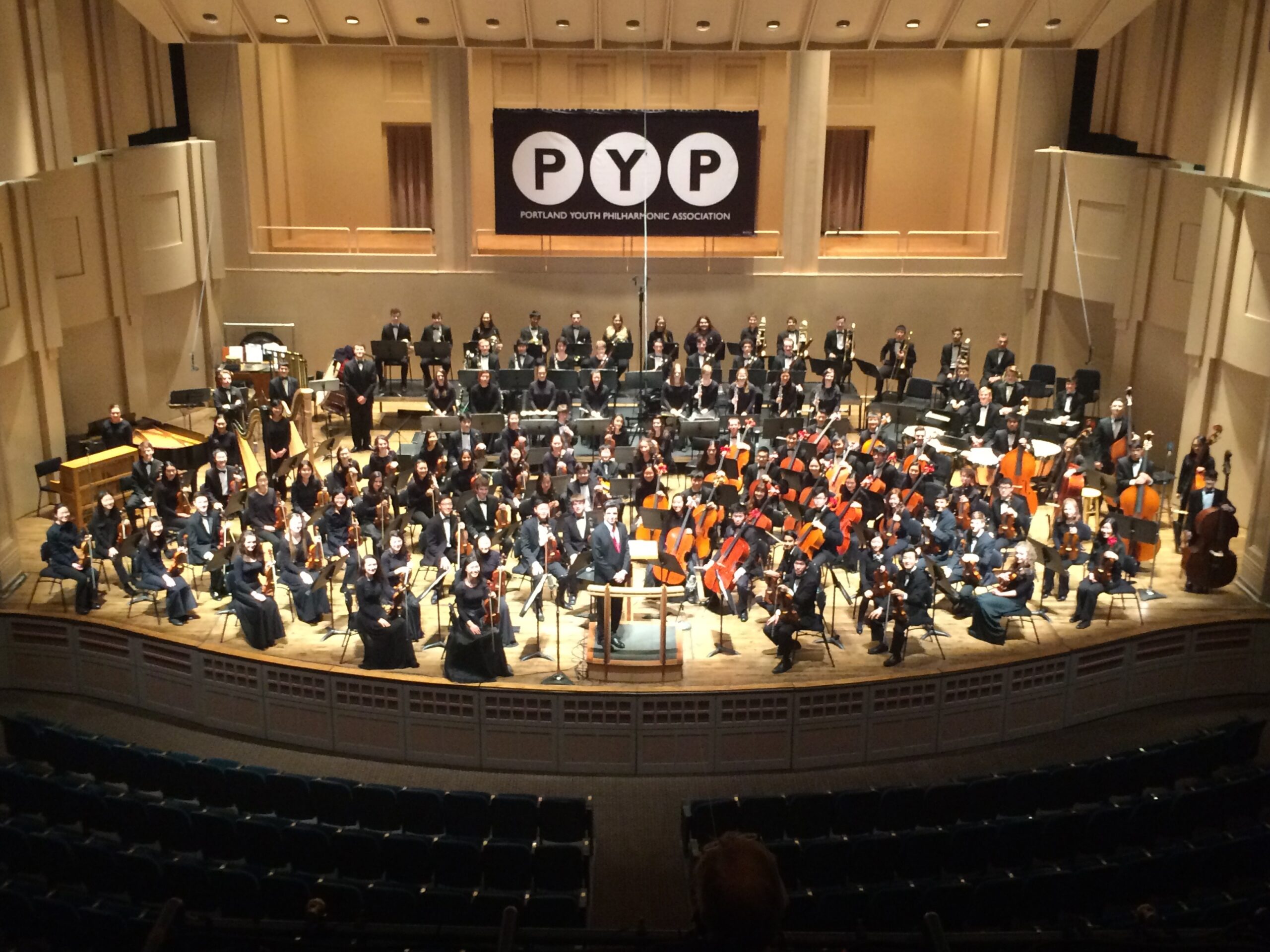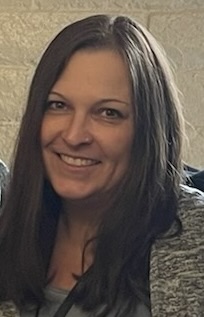
Back-to-school means a lot of fun, fresh starts. It’s the ideal time for students to think about trying new things. If your child has never given classical music a try, and if you’re like I used to be and believe they would never even be interested, I want to encourage you and your family with a saying I learned while hanging around the youth symphony scene for a time:
How will they know they like it if they never have the chance to try?
My middle daughter taught this rocker mom about classical violin performance, but I dismissed her interest for three years because of what I did not know.
I did not know that costs do not have to be an obstacle for music students.
I did not know if my kid would stick with it.
I did not know where to locate the classical music resources.
I did not know it could be a great way to make lasting friendships.
I did not know it would make her a better, safer student overall.
She went on to spend all her schooling years on the violin in performance groups, and I learned a lot right along with her. Here’s what I want you to know that I once did not:
- Students can borrow, rent, or buy on payment to get into their chosen instrument, and schools are the best places to check first for what is available. (For instance, my own community’s public school district recently received a generous donation of 90 guitars gifted free to every student who chose to play one.) Grown-ups love supporting your child’s interest in music; trust me. It’s especially fun to become one of those grown-ups who do! (Please remember your local––or a higher-need––community’s musical kids when considering your charitable donations this year.) Scholarships for lessons and performance fees are also available in most places where kids learn and perform music, and these are frequently utilized. Never let finances be why you say no to your child’s interest in music. Be sure to ask about what is available and possible, and know that others are doing so, too.
- A student’s interest in anything, even their most beloved passions, will wax and wane, and wanting to explore several new things is healthy at every stage of a child’s development. A child’s participation in a specific activity should not be forced. That said, it’s important for all involved, especially your child, to develop character through making and keeping commitments, so I urge families to discuss and maintain a rule that your student must finish what they start (one school year or one season at a time, for instance) before they give it up. My violinist daughter considered stopping many times over the years, but every year the community’s youth symphony auditions came back around, every year she was one more year experienced, she jumped back in to renew her commitment. Agree together: student choice not parental force, but we respect our commitments.
- The best way to find great music leadership is to go to the sources in your own community that already know the most about these things: the music teachers in the schools, the orchestra/symphony organizations (either adult or youth symphony staff can get you and your potential music student heading in right directions), the local music stores––especially where independently-owned, and even the many instrument care and repair shops. (Violins are crafted and tended by very talented folks called luthiers … now I know!) You can also ask other parents of students who are already folded into any of these musical spaces. You can even put out an ask on social media, and resource-laden people like me will dogpile your post with the plethora of resources you have available but don’t yet know about. Remember, you don’t have to find everything all at once. Start with the leadership––the instructor, even before seeing the instrument––along with this one critical piece of wisdom: shop around a little to find a fun and satisfying first fit for your kiddo in that very first person who will work with them. If a music student learns that their new instrument is fun and rewarding, they’ll be more likely to clear the early learning curve and keep going.
- A flock of birds, a herd of horses, a pride of lions … the collective noun for performance musicians could be called a Friendship. If your child folds into an instrument, their instrument will likely be the thing that folds them into meaningful––even long-lasting––connections with peers who will positively influence each other in many areas of student life. There’s something about harmonizing as a group that keeps kids wanting to do that together even after placing their instruments back in their respective cases at the end of a practice or performance.
- Yeah, you may still be wondering if classical music instruction is the thing to try when there are so many activity options out there to choose from. Introduce your young person to many other activities, but also give music participation due consideration. I’m an experienced parent and teacher, and while I am admittedly biased now about classical music for kids, there’s evidence to support my enthusiasm: research shows that these music-involved kids tend to grow better brains and behaviors than their peers who are not involved in music (1).
So, let’s just say we’re open to possibilities. How do we start the conversation? Where do we introduce the experience of classical music learning?
- Make the unfamiliar familiar: Instrument Petting Zoos are a thing among orchestras. Often, an orchestra group will host an open house that allows children to get up close and hands-on with many of the orchestral instruments, usually with supervision and cheerful, encouraging guidance. Inquire in your area with your community’s or school district’s music groups to ask what is available and possible. If they aren’t already hosting an Instrument Petting Zoo this school year, the suggestion might inspire them! The next best option is to visit the local music stores on field trips and leave the credit cards at home.
- Reach out: Most school music teachers and youth symphony conductors want to encourage parents and students to reach out and inquire about our children’s interests and opportunities in music instruction and performance. Every year, music instructors and conductors everywhere hope another generation of young people will continue the tradition and join the ranks of Music Students, so do not be shy! These professional, music-minded people are already waiting for us to give them a fair chance to share their love of music with our children and families, and it is easier for us to find them than the reverse. Reach out. Someone will be glad you did, and it might be your own grown child one day who carried music into their future and is grateful that you encouraged and supported that.
- Participate: Oregon is rich with music resources, offerings, and opportunities, and commitment to the arts is one of the very best features of our great state. Be sure to teach your child how to seek out the arts, how to involve themselves, and how to also invest in this collective momentum so that these treasures of community are sustained. Many regions in Oregon have youth symphony groups, but even adult symphony groups will sometimes offer performances specially tailored to younger audiences. Attending a concert together, learning how to absorb a performance in quiet and relaxed respect and appreciation, and then discussing all that with interest and enthusiasm afterward over a shared treat can prove memorable in a bonding and inspirational way … and not just for your child.
Here is where to find a dozen of the most prominent youth-based orchestra/symphony groups and their events around Oregon:
Youth Symphony Groups Across Oregon:
Metropolitan Youth Symphony (MYS)
Portland Youth Philharmonic (PYP)
Youth Symphony of Southern Oregon (YSSO)
Eugene-Springfield Youth Orchestras (ESYO)
Corvallis Youth Symphony Association (CYSA)
Oregon Coast Youth Symphony Festival Association
Central Oregon Youth Orchestra (COYO)
Oregon East Symphony Youth Orchestras
Oregon Pro Arte Youth Chamber Orchestra
So, parents! Let’s select one of these groups and get at least one of their upcoming event dates on our family’s calendar. After all,
How will you know you like it if you never have the chance to try?
(1). Habibi, Assal, et al. “Music training and child development: a review of recent findings from a longitudinal study.” Annals of the New York Academy of Sciences, 10.1111/nyas.13606. 6 Mar. 2018, doi:10.1111/nyas.13606

Traci NW (northwest) brings the SW region of Oregon closer to you from her generational hometown of Ashland in the Rogue Valley. She is a freelance writer and a licensed teacher with her MA from CU-Boulder (officially in Education, unofficially in skiing). The paperweight on her writing desk is a cat named Maya that does tricks. You can contact Traci directly at www.tracinw.com
